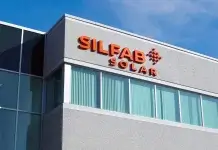Ascent Solar Technologies Inc., a designer and manufacturer of featherweight, flexible thin-film photovoltaic solutions, has achieved cell production efficiency of 15.2% in its CIGS solar technology, a significant increase from the 10.8% standard efficiency measured for production material in 2012.
This increase is attributed to the targeted optimization of the existing cadmium sulfide (Cds) deposition and manufacturing processes behind the company’s CIGS technology.
Parallel development efforts have been successful in the replacement of the Cds deposition in the production process. Cds is a known harsh material, which ASTI has strategically sought to shift away from, to limit hazardous production components and eliminate the need for specialty waste mitigation processes.
The preliminary efficiency measurements of this next-generation material (which utilizes zinc oxysulfide in lieu of Cds) indicate that yields are 5% to 8% higher than that of Cds, which would translate to a theoretical efficiency of 16% to 16.4%. With continued promising results such as these production trials, the Ascent team is redefining what is possible for thin-film CIGS technology efficiencies.
“We’re thrilled with the recent achievements in process optimization for our CIGS technology, an innovation in thin film PV that we believe positions us for increased commercial adoption,” says Paul Warley, CEO of Ascent Solar Technologies. “With continued increases in efficiency, we anticipate expanding sales into both new and existing markets, and meeting the ever-increasing demand for solar power in targeted specialty applications.”




